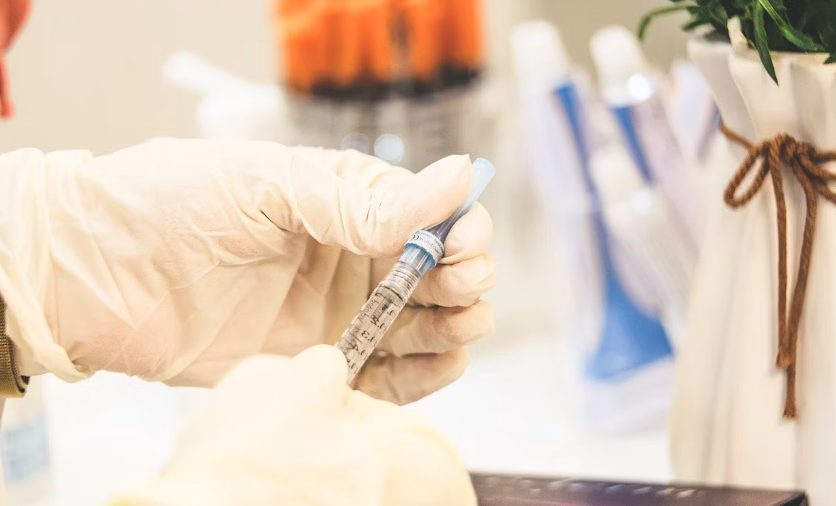
@ShahidNShah


If you have paid attention to how people shop for skincare, you’ve noticed a shift. It’s not only about anti-aging or brightening anymore. People want products that reflect who they are: vegan, cruelty-free, eco-conscious, or made with simple ingredients they recognize.
That’s why smaller startups are gaining ground against long-standing giants. Did you know surveys show that more than half of skincare consumers prefer brands that align with their personal values over big-name labels? This change opens doors for new players like you. And the best part is you don’t need to build a lab to start.
In this article, you’ll learn how to create your own space in the skincare market without the traditional barriers that used to hold founders back.
People buy more than a product when they choose skincare. They’re buying a feeling. Maybe it’s confidence before a big meeting or the comfort of a nightly ritual. Because of that, the market keeps expanding. Reports say it’ll pass $200 billion worldwide in the next few years. That’s not just growth, it’s an invitation for newcomers.
And consumers aren’t only chasing the big names. They’re looking for smaller, authentic brands that feel closer to their own values. Vegan, cruelty-free, sustainable words like these matter now more than ever.
Here’s where many people freeze. They think skincare equals mixing chemicals in white coats, but that’s not how most indie brands get started.
The truth is that many successful founders rely on private-label or contract manufacturers to handle the heavy lifting. These professionals already have certified facilities, skilled teams, and the compliance expertise that would take you years to build. Instead of struggling with formulas and regulations, you can focus on crafting the story and enhancing the customer experience.
To gain insight into how professionals in this field operate, you can visit https://www.rainshadowlabs.com/, where the process of developing custom formulas, bulk production, and packaging support is clearly outlined. Seeing how these services function can help you understand what’s available and which options might be most beneficial for your own brand. For first-time founders, having such resources to lean on is often the difference between an idea that stays on paper and one that reaches customers.
Before you even think about jars and labels, pause. What space are you filling? Are you imagining a line for sensitive skin? Affordable everyday staples that actually work? Or something eco-conscious with packaging that makes people feel good about their purchase? The clearer you are here, the stronger your foundation.
The truth is, your products are only part of it. Your story is just as important. People remember why you started and what you stand for.
Skincare isn’t like selling T-shirts or stationery. Every jar and label must meet specific requirements. If you say your cream “heals eczema,” you’re entering drug territory, which is a whole different level of regulation. Instead, focus on the benefits you can stand behind: hydrating, smoothing, and refreshing.
Most manufacturers will guide you here, but it helps to learn the basics yourself. Being transparent and careful with wording builds trust with your customers.
Think about your favorite skincare product. Chances are, you remember more than just how it felt. The packaging, the tone of the brand, even the way the website made you feel, all of it stuck.
That’s what branding is. Not just a logo, but the voice, the message, and the promise. Maybe you’re the friendly brand that keeps things simple. Or maybe you lean toward luxury and exclusivity. Whatever you choose, consistency is key. Customers should know what you stand for the second they see your product.
The market is noisy, but people are paying attention. Social media is a huge driver. A short TikTok showing a nighttime routine can sell out a serum overnight. YouTube reviewers and Instagram creators have built careers solely by discussing skincare.
If your product solves a problem and looks good on camera, people will talk about it. Sampling, influencer partnerships, and word of mouth all matter. But so does your website. Make sure it’s clean, easy to use, and answers every question a buyer might have before they click purchase.
Here’s something many people miss: you don’t need to launch with twenty products. One or two great ones are enough.
Some of the biggest names in skincare began with a single hero product before expanding their offerings. Beginning small saves money, reduces risk, and allows you to learn what customers truly want. From there, you can expand naturally.
Starting a skincare brand without a lab isn’t just possible, it’s practical. With the right vision, a trustworthy partner, and a story that resonates, you can step into this booming market confidently. The demand for new voices and authentic products keeps growing. If you’ve been waiting for the “right time,” it might be now.

There’s a quiet side of medical billing where revenue slips through cracks you hardly notice. Even strategies that seem effective on the surface, like hiring an in-house coder, don’t always catch …
Posted Aug 27, 2025 Coding / Billing And Claims Payment Models
Connecting innovation decision makers to authoritative information, institutions, people and insights.
Medigy accurately delivers healthcare and technology information, news and insight from around the world.
Medigy surfaces the world's best crowdsourced health tech offerings with social interactions and peer reviews.
© 2026 Netspective Foundation, Inc. All Rights Reserved.
Built on Feb 23, 2026 at 1:50pm